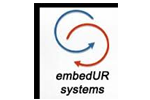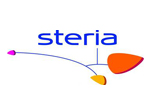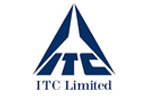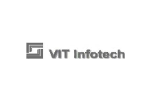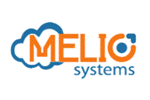The Department of Artificial Intelligence & Data Science was started in the year 2020 with a sanctioned intake strength of 60. With the advancement of Artificial Intelligence & Data Science, Students of Velammal I Tech are transformed to industry – ready professionals by building smart machines with cutting edge technologies like Machine Learning, Computer Vision, etc. The Department laboratories is equipped with well – established, interconnected computing resources to offer training in the required latest technology skills and also helps the students to meet their demands of the curriculum. The faculties of the Department are diligently working as a team to enhance the critical thinking abilities and problem solving skills of their students. Apart from imparting conventional technical education and a rich learning environment, emphasis is laid on co-curricular activities such as Seminars, knowledge sharing by Domain Experts, Value Added courses, Collaborative Learning with reputed Universities of India and Abroad. The curriculum covers primitive courses such as Machine Learning, Deep Learning, Data Science using R programming, Natural Language Processing, Big Data Analytics, etc.
VISION
To create renowned and skilled engineers with creative ideas to compete in the emerging field of Artificial Intelligence and Data Science
MISSON
1. To provide high-quality education on existing and evolving Artificial Intelligence and Data Science technology.
2. To develop technologically superior students and prepare them as responsible engineers with human values.
3. To train students as Artificial Intelligence Engineers, Data Scientists, Data Analysts, and Machine Learning Engineers, and to shape their future.
4. To enrich students with required skills for employability, entrepreneurship and pursuing higher studies.
5. To encourage the students to implement innovative research and development ideas.
1. To provide graduates with the proficiency to utilize the fundamental knowledge of basic sciences, mathematics, Artificial Intelligence, data science and statistics to build systems that require management and analysis of large volume of data.
2. To enrich graduates with necessary technical skills to pursue pioneering research in the field of AI and Data Science and create disruptive and sustainable solutions for the welfare of eco system.
3. To enable graduates to think logically, pursue life long learning and collaborate with an ethical attitude in a multi disciplinary team.
To enable the graduates to design and model AI based solutions to critical problem domains in the real world.
4. To enrich the innovative thoughts and creative ideas of the graduates for effective contribution towards economy building.
Graduates of Bachelor of Artificial Intelligence and Data Science will have the ability and capability to
- PSO1: Graduates should be able to evolve AI based efficient domain specific processes for effective decision making in several domains such as Business and Governance domains.
- PSO2: Graduates should be able to arrive at actionable Fore sight, Insight, hind sight from data for solving business and engineering problems.
- PSO3: Graduates should be able to create, select and apply the theoretical knowledge of AI and Data Analytic along with practical industrial tools and techniques to manage and solve wicked societal problems
- PSO4: Graduates should be capable of developing Data Analytic and Data Visualization skills, its pertaining to Knowledge Acquisition, Knowledge Representation and Knowledge Engineering, and hence capable of coordinating complex projects.
- PSO5: Graduates should be able to carry out fundamental research to cater the critical needs of the society through cutting edge technologies of AI.
Engineering Graduates will be able to:
1. Engineering knowledge: Apply the knowledge of mathematics, science, engineering fundamentals, and an engineering specialization to the solution of complex engineering problems.
2. Problem analysis: Identify, formulate, review research literature, and analyze complex engineering problems reaching substantiated conclusions using first principles of mathematics, natural sciences, and engineering sciences.
3. Design/development of solutions: Design solutions for complex engineering problems and design system components or processes that meet the specified needs with appropriate consideration for the public health and safety, and the cultural, societal, and environmental considerations.
4. Conduct investigations of complex problems: Use research-based knowledge and research methods including design of experiments, analysis and interpretation of data, and synthesis of the information to provide valid conclusions.
5. Modern tool usage: Create, select, and apply appropriate techniques, resources, and modern engineering and IT tools including prediction and modeling to complex engineering activities with an understanding of the limitations.
6. The engineer and society: Apply reasoning informed by the contextual knowledge to assess societal, health, safety, legal and cultural issues and the consequent responsibilities relevant to the professional engineering practice.
7. Environment and sustainability: Understand the impact of the professional engineering solutions in societal and environmental contexts, and demonstrate the knowledge of, and need for sustainable development.
8. Ethics: Apply ethical principles and commit to professional ethics and responsibilities and norms of the engineering practice.
9. Individual and team work: Function effectively as an individual, and as a member or leader in diverse teams, and in multidisciplinary settings.
10. Communication: Communicate effectively on complex engineering activities with the engineering community and with society at large, such as, being able to comprehend and write effective reports and design documentation, make effective presentations, and give and receive clear instructions.
11. Project management and finance: Demonstrate knowledge and understanding of the engineering and management principles and apply these to one’s own work, as a member and leader in a team, to manage projects and in multidisciplinary environments.
12. Life-long learning: Recognize the need for, and have the preparation and ability to engage independent and life-long learning in the broadest context of technological change.



























